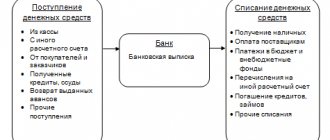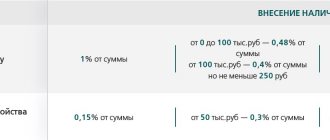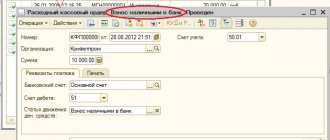Except in what cases are foreign exchange transactions between residents prohibited?
In accordance with paragraph 1 of Art.
9 of Law No. 173-FZ, foreign exchange transactions between residents in Russia are prohibited, except in a limited number of cases. Currency transactions between residents are allowed to be carried out:
- In the following cases:
- when transferring rubles from one resident’s account opened outside Russia to another’s account opened in Russia, and vice versa, from a Russian account to one opened abroad;
- when transferring rubles from a resident’s account opened abroad to the same foreign account of another resident;
- resident legal entities when carrying out the following currency transactions with funds credited to their foreign accounts:
- for the payment of wages to employees of its representative office located abroad;
- for reimbursement and payment of travel expenses of employees of foreign missions sent to the territory of the country where the representative office is located, or to another place, with the exception of business trips in Russia;
- cash payments (including in foreign currency) when carrying out transactions with resident individuals located abroad and foreign branches (representative offices) of other resident legal entities;
- donating currency to the country and society or to close relatives and spouses;
- wills/receipt of currency by inheritance;
- acquisition of currency valuables for collecting purposes;
- making a transfer of funds without opening a foreign currency account from Russia or receiving foreign currency in Russia as a transfer, since the Central Bank sets a limit on the amount of such transfers.
ConsultantPlus experts explained in detail how foreign exchange payments and control of foreign exchange transactions are carried out. Get trial access to the K+ system and upgrade to the Ready Solution for free.
More information about what currency transactions are can be found in the article “Currency transactions: concept, types, classifications” .
Mistakes of residents when determining their status
Article published: February 09, 2016
From various observations, including forums of freelancers and foreign compatriots, we concluded that it is necessary to clarify the difference between the concepts of resident/non-resident under tax legislation and legislation on currency control (for brevity, we will call this status “currency resident”).
So:
— tax residents are individuals who are actually in the Russian Federation for at least 183 calendar days over the next 12 consecutive months (clause 2 of Article 207 of the Tax Code of the Russian Federation);
— currency residents are individuals who are citizens of the Russian Federation, with the exception of citizens of the Russian Federation who are permanently residing in a foreign state for at least one year, including those who have a residence permit issued by the authorized state body of the relevant foreign state, or who are temporarily staying in a foreign state at least one year on the basis of a work visa or study visa with a validity period of at least one year or on the basis of a combination of such visas with a total validity period of at least one year (clause 6 of article 1 of the Federal Law “On Currency Regulation and Currency Control” dated December 10, 2003 N 173-FZ).
Among the significant differences between these concepts, we point out, in particular, the fact that a citizen of the Russian Federation can combine both statuses, while a non-citizen of the Russian Federation can be exclusively a tax resident.
The responsibilities of tax residents are to pay taxes on income both from sources in the Russian Federation and from sources located outside the Russian Federation. The duty of tax non-residents is to pay taxes on income from sources in the Russian Federation.
What are the responsibilities of a currency resident of the Russian Federation?
First of all, this is the obligation to notify the tax authorities about the opening/closing of accounts in banks located outside the territory of the Russian Federation (Article 12 of the Law on Currency Control; the established period is 1 month; responsibility is established by the Code of Administrative Offenses (Administrative Code, Article 15.25) a fine of one thousand to one thousand five hundred rubles for violating the notice period and from four thousand to five thousand rubles for failure to provide notice at all). In the absence of such notification, problems may arise with the crediting/transfer of funds between accounts in the Russian Federation and foreign accounts. For the first such transfer, you are required to present the bank with a copy of the Federal Tax Service notification.
It must be admitted that the legislation does not answer the question of whether a citizen of the Russian Federation who was not one before the date of arrival in the Russian Federation for a short period of time becomes a currency resident. That is, having lived (let’s say) 5 years abroad, a citizen arrived in the Russian Federation for 1 month. Is this status available for this month? Do I urgently need to fulfill all the duties of a currency resident during this month? We believe not. If only because in this case the status of permanent residence in a foreign country is not lost. But after the “final” arrival in the Russian Federation, such a citizen immediately becomes a currency resident of the Russian Federation, since he ceases to be a person “permanently residing in a foreign country for at least one year.”
An analysis of the provisions of the current legislation also leads us to the conclusion that only persons who were “currency” residents of the Russian Federation at the time of opening/closing such accounts are required to notify the tax authorities about the opening/closing of accounts abroad. As an indirect confirmation of this statement, let us consider the forms of notifications (remember that tax authorities can only be notified using established forms). As you can see, these forms are intended to be filled out only by residents. See https://www.nalog.ru/rn77/fl/interest/account_openi…
A new obligation of currency residents (from January 1, 2015) in accordance with Federal Law dated July 21, 2014 N 218-FZ, amending paragraph 7 of Article 12 of Federal Law N 173-FZ “On Currency Regulation and Currency Control”, is the obligation of individuals persons who have accounts (deposits) in foreign banks, submit to the tax authorities at the place of their registration reports on the movement of funds in these accounts in the manner established by the Government of the Russian Federation.
The form of such a report is approved by Decree of the Government of the Russian Federation of December 12, 2015 N 1365.
The report is submitted annually, before June 1 of the year following the reporting year (clause 2 of the Rules).
For non-compliance by citizens with the procedure for submitting reports on the movement of funds on accounts (deposits) in banks outside the territory of the Russian Federation, administrative liability is provided in the form of a fine in the amount of 2,000 to 3,000 rubles. (Part 6 of Article 15.25 of the Code of Administrative Offenses of the Russian Federation). In addition, liability for violation of the deadline for submitting reports is provided in the form of a fine in the amount of 300 to 3000 rubles. (Parts 6.1 - 6.3 of Article 15.25 of the Code of Administrative Offenses of the Russian Federation). Topics: Currency control, resident
Foreign currency accounts: are there any restrictions on transactions between residents and banks?
There are no restrictions on currency transactions between residents and authorized banks if they relate to:
- credit relations (payment of interest, fines and penalties, receipt/repayment of a loan);
- depositing/withdrawing funds from bank accounts;
- obtaining bank guarantees, fulfilling by the resident the duties of a guarantor, mortgagor;
- purchasing bills of exchange issued by authorized banks, demanding payment on them upon presentation;
- acquisition/sale of foreign currency and checks in exchange for Russian rubles;
- payment of commissions to banks.
Residents have the right to make payments using accounts opened with authorized banks in any foreign currency. If necessary, they can carry out conversion operations at a rate agreed with banks. It does not matter in what foreign currency the account was opened.
Authorized banks, which themselves are professional participants in the securities market, can independently open and maintain their own brokerage accounts necessary for non-residents who are their clients for the purpose of accounting for funds. In addition, professional participants in the securities market themselves open special accounts in their authorized banks to record money when making brokerage transactions.
In case of violation of the conditions for carrying out currency transactions, in particular the terms for crediting funds to residents' accounts, sanctions may be applied to the offenders, the calculation of which is based on the Central Bank's refinancing rate.
Read more about this rate in the article “Information on the refinancing rate of the Central Bank of the Russian Federation” .
Is foreign currency borrowing between residents allowed?
When applying for a foreign currency loan, the lender transfers to the borrower a certain amount in foreign currency, subject to its return after a specified period. Such loans can be provided on an interest-bearing or free-of-charge basis.
Carrying out currency transactions between residents of the Russian Federation, which includes loans in foreign currency, is not allowed. However, in paragraph 1 of Art. 9 of Law No. 173-FZ provides exceptions that allow residents to receive loans in foreign currency from authorized financial institutions when drawing up relevant agreements. That is, if such a loan is taken out from a bank, there is no violation of the law.
If a loan agreement is concluded between 2 resident economic entities, it must contain only ruble amounts. If you wish to indicate them in the currency at the time of settlement, the final amount should be linked to the exchange rate according to the Central Bank of the Russian Federation.
If a currency transaction to issue a loan is carried out between a resident and a non-resident of the Russian Federation, there are no restrictions on it.
Features of currency transactions between non-residents
In accordance with Art. 10 of Law No. 173-FZ, foreign exchange transactions between non-residents are allowed in Russia without any restrictions. Thus, non-residents can freely transfer foreign currency and Russian rubles to each other from/to bank accounts in authorized banks to/from foreign accounts. There are also no restrictions regarding making payments between non-residents without opening bank accounts, both when receiving funds from abroad and when transferring currency and rubles abroad.
Non-residents are allowed any transactions with domestic securities on the territory of Russia, subject to compliance with federal antimonopoly legislation. At the same time, non-residents must carry out currency transactions among themselves using rubles only through bank accounts opened in the Russian Federation.
For information about what taxes and contributions must be paid by non-residents on the territory of the Russian Federation, read the materials:
- “Insurance premiums and taxes for non-residents”;
- Personal income tax from non-residents of the Russian Federation in 2021".
Control of currency transactions in Russia
The execution of foreign exchange transactions in Russia is controlled by Law No. 173 Federal Law and regulations of government bodies. Currency transactions in Russia are controlled by:
- exchange control agents;
- currency control authorities.
Currency control agents include Russian financial companies, the state organization Vnesheconombank, fiscal authorities, brokers and dealers.
Currency control bodies - the Central Bank, the Government of the Russian Federation, executive authorities.
Banking institutions ensure that currency transactions strictly comply with the law. Bank employees have the right to request documents to confirm the legality of using currency assets or crediting money to the company account. The legality is confirmed by contracts, agreements on transactions, and other documents.
Registration of a foreign exchange transaction is carried out after submitting a package of documents. The company must report and provide all supporting documents to the bank branch.
Note! Foreign exchange transactions will be prohibited if the bank suspects something. They can refuse either due to the lack of necessary documents or if errors are identified in their preparation.
The procedure for making payments between residents and non-residents
In Russia there are no restrictions on currency transactions between residents and non-residents. The exception is cases where certain restrictions are established to prevent a decrease in foreign exchange reserves in Russia.
Before 2006–2007, many more such restrictions were in place. However, today there is only the restriction specified in Art. 11 of Law No. 173-FZ. In particular, transactions for the acquisition or sale of foreign currency, as well as checks in such currency, can only be carried out through banks authorized to carry out foreign exchange transactions.
In addition, the Central Bank establishes a number of requirements for financial institutions for documenting transactions with cash foreign currency. Thus, the financial regulator provides for the requirement for mandatory identification of a person buying or selling foreign currency. Personal data may be included in documents drawn up when conducting transactions with foreign cash.
All overseas transactions between residents and non-residents are subject to exchange controls. Details are in the material “Currency control when transferring money abroad” .
Results
To summarize, it can be concluded that foreign exchange transactions between residents are prohibited, except in a limited number of cases. All these exceptions are listed in Law No. 173-FZ and can only be expanded by amending this law.
As for currency transactions between residents and non-residents, as well as settlements carried out by non-residents among themselves, there are no significant restrictions for them. There are only a number of requirements for the execution of transactions.
When making transactions with foreign currency values and currencies (foreign and Russian), you will need to indicate codes for types of currency transactions, which can be found in the article “Directory of codes for types of currency transactions (2020 - 2021)” .
These requirements, as well as the procedure for execution and forms of the necessary documentation, are described in detail in the regulations issued by the federal financial regulator.
Sources: Federal Law of December 10, 2003 No. 173-FZ
You can find more complete information on the topic in ConsultantPlus. Free trial access to the system for 2 days.
What transactions are considered foreign exchange?
For accounting and tax accounting purposes, all transactions that lead to the emergence, change, and repayment of obligations and claims, the value of which is expressed in foreign currency, are considered to be foreign exchange transactions. Federal Law No. 173-FZ of December 10, 2003 “On Currency Regulation and Currency Control” calls the following transactions of resident organizations foreign exchange transactions (Article 1 No. 173-FZ):
- acquisition of currency and foreign securities from a resident, their alienation in favor of the resident, use for payment;
- similar actions committed between a resident and a non-resident;
- import into Russia and export outside its borders of Russian and foreign currency (as well as domestic and foreign securities);
- transfer of rubles and currency (and securities) from an account in Russia to an account abroad and vice versa;
- ruble transfers between residents both from the Russian Federation abroad and vice versa;
- transfers of rubles from account to account - your own or some other resident or non-resident - outside the Russian Federation.
Conversion transactions are also foreign exchange, i.e. exchange transactions in which payments and (or) credits are carried out at the exchange (cross) rate agreed upon with the bank (Article 14 No. 173-FZ). It doesn’t matter what currency the account was originally opened in.
MTS Bank offers profitable conversion transactions: an attractive rate, real-time transactions, no hidden commissions, convenient time for transactions, an individual rate depending on the transaction amount, the possibility of remote transactions and settlements of conversion transactions on counter payments.






